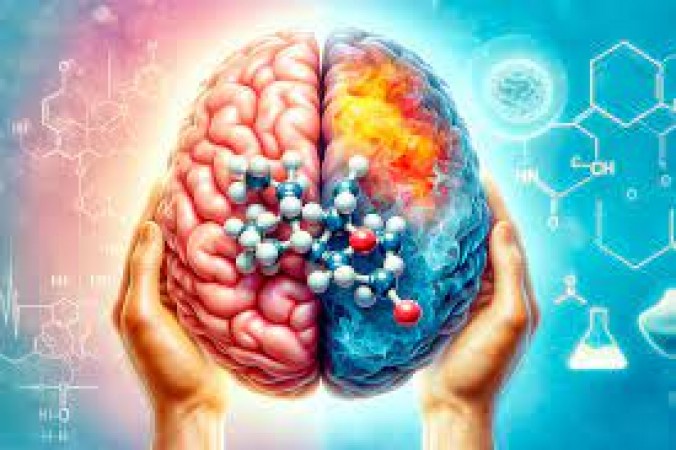
In a recent study, researchers have uncovered a startling connection between elevated levels of what is traditionally considered 'good' cholesterol and the potential risk of serious brain diseases. This revelation challenges the conventional wisdom surrounding the positive impact of high-density lipoprotein (HDL) cholesterol on cardiovascular health.
Traditionally, HDL cholesterol has been hailed as the "good" cholesterol due to its role in removing excess cholesterol from the bloodstream. However, this new research suggests that a higher concentration of HDL may not always translate to better health outcomes.
The study, conducted over several years, involved a diverse group of participants and scrutinized their cholesterol levels alongside neurological health. Surprisingly, the researchers found a significant correlation between elevated HDL cholesterol and an increased risk of serious brain diseases, including neurodegenerative conditions.
The findings indicate that the relationship between cholesterol and brain health is far more complex than previously thought. While HDL cholesterol performs essential functions in removing cholesterol from arterial walls, its impact on brain health appears to be a double-edged sword.
Understanding the role of cholesterol in brain health is crucial for comprehending the implications of this study. Cholesterol is a vital component of cell membranes in the brain and is essential for neuronal function. However, an imbalance, especially with high levels of HDL, may disrupt this delicate equilibrium.
Researchers speculate that the increased risk might be linked to the intricate interplay between cholesterol, inflammation, and the formation of plaques in the brain. These factors, when combined, could contribute to the development of serious neurological conditions.
This revelation not only challenges prevailing notions about cholesterol but also raises questions about the conventional approach to cardiovascular health. It underscores the need for a more nuanced understanding of cholesterol dynamics and its impact on different aspects of health.
In light of these findings, individuals and healthcare professionals are faced with a dilemma. How does one balance the benefits of maintaining optimal cholesterol levels for heart health while considering the potential risks to brain health?
Experts suggest that a more personalized approach to healthcare is imperative. Tailoring strategies based on an individual's overall health, genetic predispositions, and lifestyle factors may be the key to mitigating potential risks associated with elevated HDL cholesterol.
Simple lifestyle changes, such as regular exercise, a balanced diet, and stress management, can play a pivotal role in achieving the delicate balance required for overall health. These lifestyle modifications not only impact cholesterol levels but also contribute to holistic well-being.
As the scientific community grapples with this paradigm-shifting revelation, the need for further research becomes apparent. Deeper insights into the mechanisms linking cholesterol and brain health are essential for developing targeted interventions and refining health guidelines.
This study reinforces the importance of viewing health in a holistic manner. Rather than focusing solely on isolated indicators, a comprehensive understanding of the interconnectedness of different bodily systems is vital for promoting overall well-being.
The intersection of neurology and cardiology, known as neurocardiology, is gaining prominence. This emerging field aims to explore the intricate connections between heart health and brain function, providing a more integrated perspective on overall health.
In conclusion, the study challenging the perceived benefits of high levels of 'good' cholesterol serves as a wake-up call for the medical community and the general public. It prompts us to reevaluate our understanding of cholesterol dynamics and encourages a more nuanced, personalized approach to healthcare.
As we navigate the complexities of cholesterol's impact on different facets of health, it becomes evident that a one-size-fits-all approach may not suffice. Embracing the intricacies and uncertainties in medical research allows for a more resilient and adaptive healthcare system.
In an era of evolving medical insights, staying informed is key to making empowered health decisions. Regular check-ups, discussions with healthcare providers, and a proactive approach to lifestyle choices contribute to a healthier, more informed life.
In-laws' side will be strong for people of these zodiac signs, know what your horoscope says...